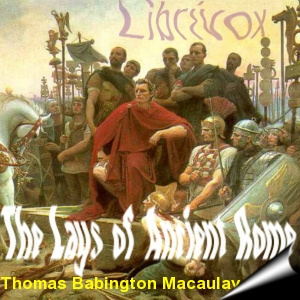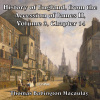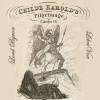Thomas Babington Macaulay - Lays of Ancient Rome
Thomas Babington Macaulay
100%
Speed
Narratives
814
Summary
The Lays of Ancient Rome comprise four narrative poems comprised by Lord Thomas Babington Macaulay: recalling popular episodes from Roman historical-legends that were strongly moral in tone: exemplifying Roman virtue against Latine perfidy.
The four poems are:
— Horatius — Horatius and two companions seek to hold back a large invading Etruscan force at the far end of a bridge over the Tiber River. The trio are willing to lay down their lives so as to prevent the Etruscans crossing and sacking the otherwise ill-defended Rome: it is a desperate gamble to buy enough time for the Romans to destroy the bridge in advance of the hostile army. But will their efforts succeed?
— The Battle of Lake Regillus — The Romans take arms against the powerful Latine league headed by the expelled Tarquin nobles. The fighting is desperate and bloody: the event is decided only after the arrival upon the battlefield of the twin gods Castor and Pollux.
— Virginia — Virginia is the daughter of Virginius — a poor, honest Roman farmer-citizen. In former years Virginius enlisted as a legionary and shed his blood to fight Rome's enemies: now Virginius — like other Romans of the humbler sort — suffer the usurious exactions of noblemen like the wicked Appius Claudius. Appius Claudius uses spurious legal means to take possession of Virginia as his «runaway slave»: action guaranteed to succeed given the incumbent corrupt magistracy. So what can Virginius do? To what extremes is the father forced to protect his only child?
— The Prophecy of Capys — Romulus and Remus return triumphant to the home of their grandfather Capys. When they arrive, Capys — blind and well advanced in years — is seized by a prophetic frenzy: Capys declaims a series of portents describing the future battles and victories destined as the lot of Romulus' descendants.
(Introduction by Godsend)
More from Thomas Babington Macaulay
Authorization
By logging in, you agree to the terms and conditions.


















No comments